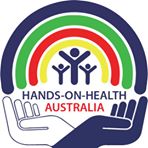All participants of HoHA's International placements are required to adhere to the same policies and procedures as domestic volunteers. Volunteers, practitioners and students in clinical placement are also required to adhere to the policies and procedures of local partner organisations. Furthermore, all participants are required to have an understanding of the community and cultural sensitivities of their project site prior to departure.
Important Documents:
Information Manual
Policies and Procedures
Participation Forms:
Obligations and Responsibilities Form
Code of Conduct Form
Emergency Contact Details Form
Consent Form
Application Process
All applicants must complete an online application form to be considered for an international placement. Once the form has been submitted, someone from the office will contact you to ensure all paperwork is submitted. Any queries regarding the application process can be directed to Don Nardella at admin@handsonhealth.com.au
An in-person or Skype meeting with HoHA staff is compulsory before the departure date for all students to discuss the particulars of the visit. All payments and bookings are to be completed before the meeting.
Clinical Hours
It is the responsibility of the student to organise any clinical hours with their college/university/institute, and to ensure they are eligible to participate in a student tour. Each separate training organisation determines the number of clinical hours granted to students for each visit and to approve each supervisor and student to supervisor ratio. As part of the application process, students are required to supply HoHA with the necessary documentation from their college/university/institute. Please note, not all students will be eligible to receive clinical or observational hours.
HoHA requirements
HoHA requires each student or student group to provide a report of their clinical studies at the end of their placement. This report should include a summary of patient encounters, conditions treated/observed, treatment methods employed/observed. A 2-page report with 2-5 photographs of treatments is requested and can be emailed to HOHA before returning home. All photos must protect the confidentiality of the patient and must have approval from both the patient and the practitioner.
Best-practice
HoHA follows best-practice principles at all times, each participant will become a member of the Friends of HoHA. The supervisor for the student group is responsible for student conduct and the delivery of quality treatment in the community. Disrespect toward the supervisor, local staff or the community is not tolerated.
Students and practitioners are required to listen to advice given by the partner organisation regarding health issues and cultural norms. The healthy exchange of skills, information and knowledge is appropriate. HoHA do not support a ‘superior’ approach to cultural issues when visiting communities.
Health
All participants are required to have comprehensive travel insurance and must provide proof of this before departure.
The health and safety of students and practitioners while participating in any HoHA related activities is paramount at all times. Participants working in Health Camps will be exposed to patients suffering a range of conditions. As health practitioners, you have a duty of care for your patients and must adhere to best practice.
While travelling overseas, students should follow medical advice given by their medical practitioner in Australia in regards to disease prevention. It is also necessary to adhere to the advice of trained on-site local medical staff regarding health practices and precautions.
Immunisation when advocated or required should be adhered to. It is the personal responsibility of the student and supervisor to ensure they are aware of all necessary vaccines and medication required for their destination. Be aware that most epidemics in developing countries are spread due to malnutrition and poor sanitation and are not airborne. For country specific travel advice, please visit http://smartraveller.gov.au/
The main issues in Asia to be aware of are malaria, Hepatitis A and gastroenteritis. TB, Polio and Leprosy are found in some poorer communities where malnutrition is common. Those under 40 years of age are not vaccinated for TB, but are vaccinated for Polio. Hepatitis A and gastroenteritis is caused by contaminated food and therefore it is important to eat hot, freshly prepared food from a known source. Most meals will be prepared for the visitor by the host organisation when overseas. Filtered water is provided, but using water purifying tablets is also highly recommended.
It is the student and practitioner’s responsibility to supply their own surgical gloves, masks, hand sanitiser, repellent, water purifying tablets, acupuncture needles with sharps container and disinfectants such as iodine. However, some students may not be in direct skin-to-skin contact with patients and may not require the above.
Dress code
Students are required to dress appropriately as per the standards of an Australian professional workplace, or of the host country. The local community will see each student as a doctor of their field and will be representing their discipline.Therefore dress code will be determined by the standards of the host country eg, women to wear a Salwar Kameez in India. HOHA can provide details on which clothing is suitable and where to purchase specific items for women. Men are required to wear long pants and at least a short sleeved business shirt for all work related activities.
Conduct
No swearing, alcohol, smoking or drug-taking is permitted by any visitor while on location. Some locations are strictly vegetarian and have other dietary restrictions. No relationships with local staff or members of the community are allowed and female students and supervisors are housed separately to male students/supervisors.
The supervisor is required to manage all issues of misconduct with the support of local staff. In some activities, men may not be permitted to work on women and vice versa, but staff will direct students regarding appropriateness of touch and use of drapery during examinations/treatments.

